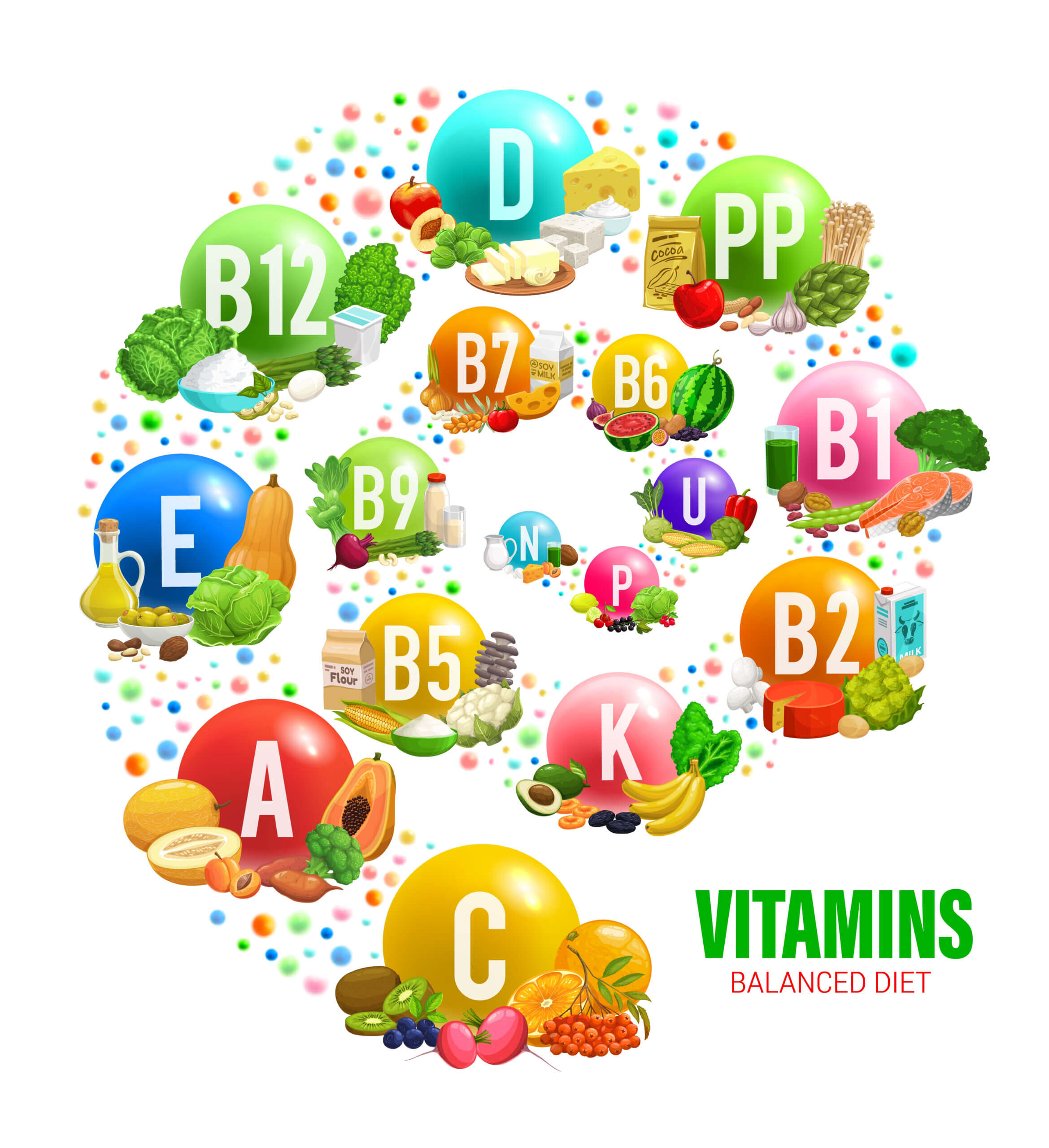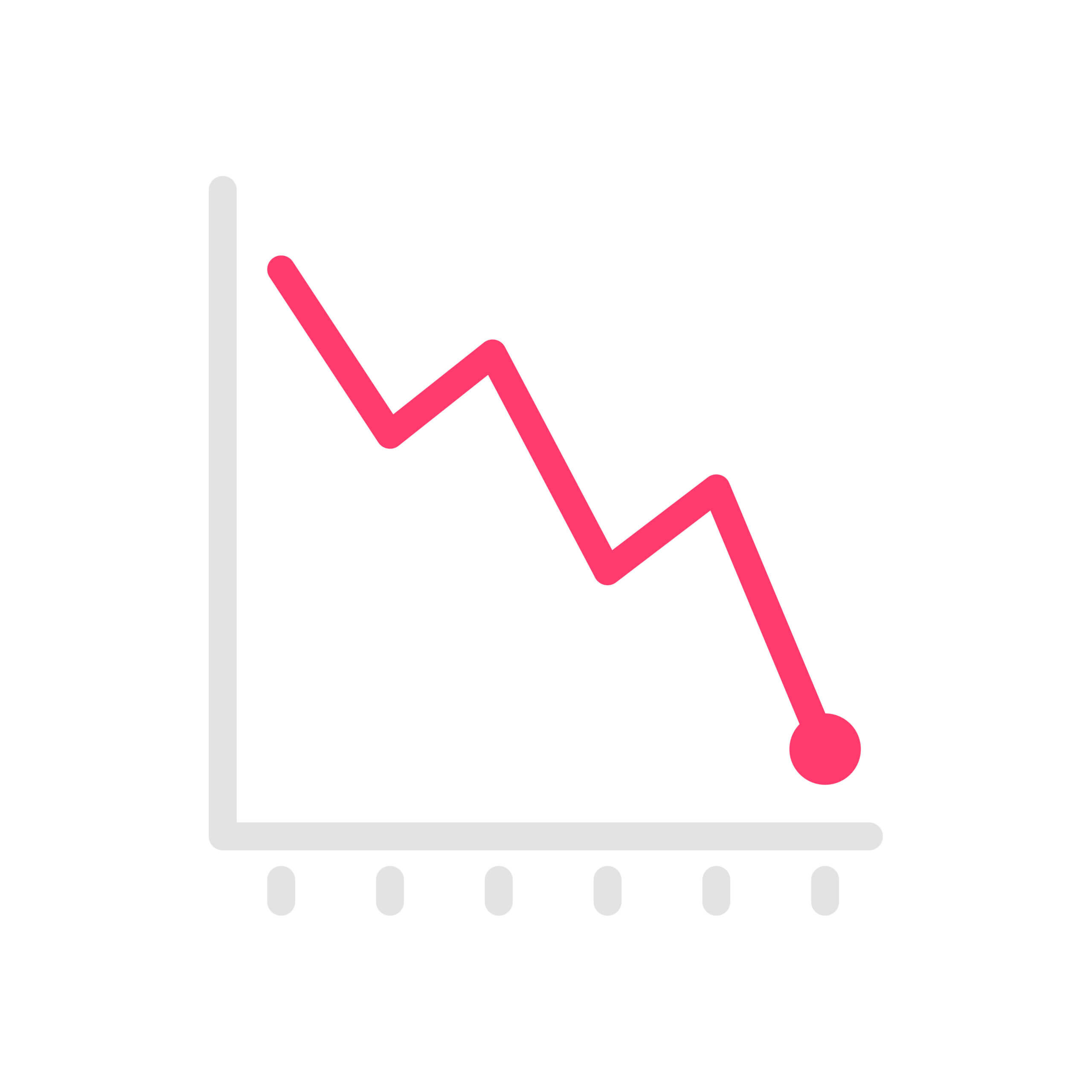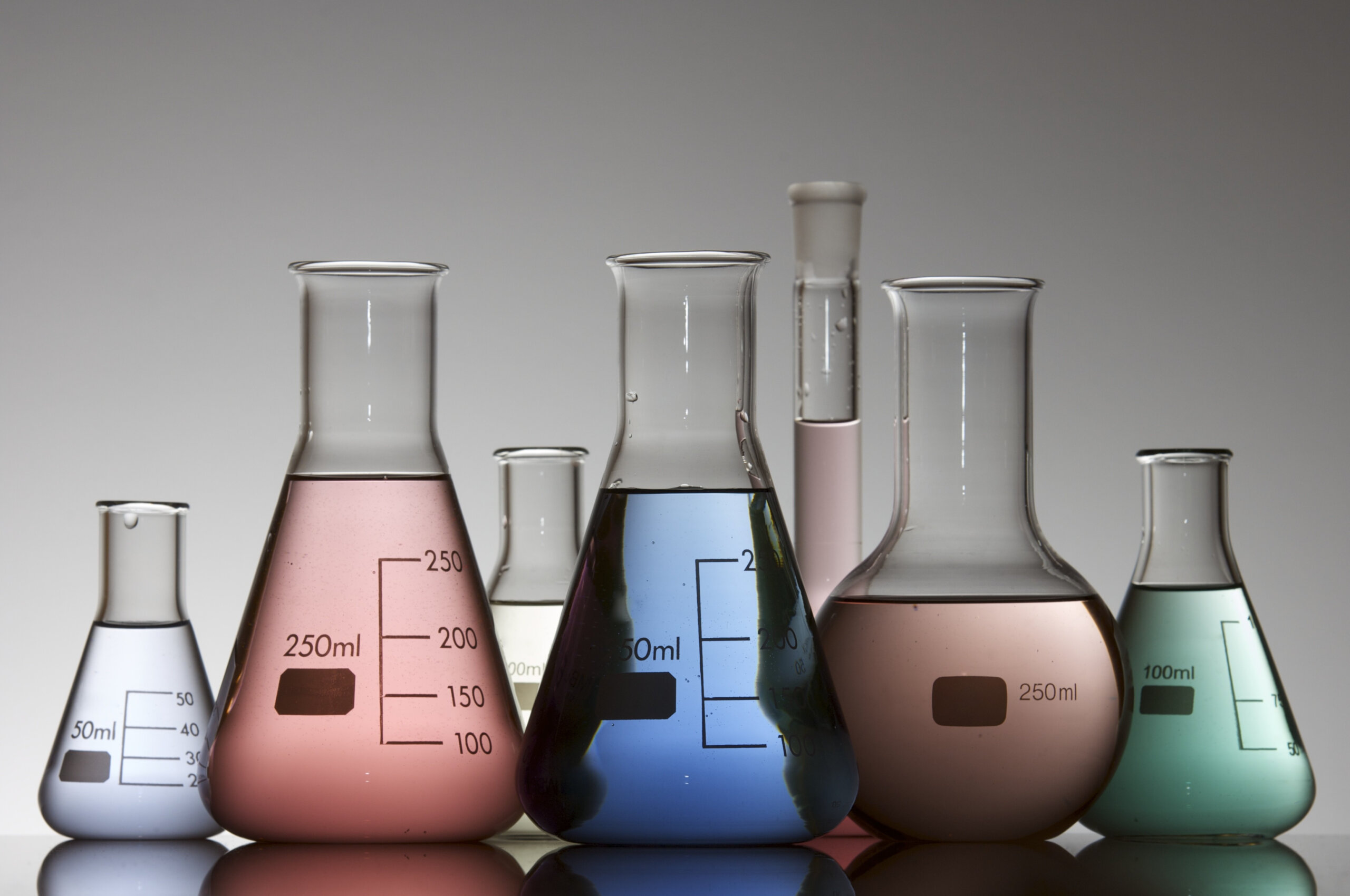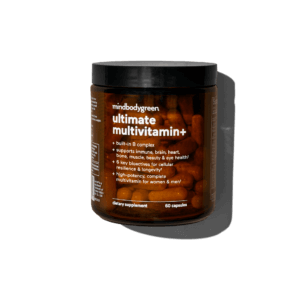It’s common to have more questions than answers when it comes to multivitamins.
Do they actually work? Do I really need one? What ingredients should I look for? Can’t I get all my nutrients from food?
To give you the short answer: Yes, multivitamins do work and can truly benefit your body (and, yes, you probably need one), BUT this is only true if you are taking a multivitamin that is high quality and well-formulated.
Of course, you’re now probably wondering how to find the right, top quality vitamin, but don’t worry— it’s easier than you think once you know what to look for.
But first things first: What do multivitamins bring to the table and why do you need one?
Reasons You Need a Multivitamin
Deficiencies & Inadequacies are Commonplace

In the U.S. alone, researchers estimate that about one-third of the population is deficient in at least one nutrient. And this is only the data for “true” clinical deficiencies. It doesn’t take into account those who are under-consuming nutrients but don’t have a severe deficiency yet.
To be even more specific, the 2015–2020 Dietary Guidelines for Americans has identified eight “danger” nutrients that Americans are most likely to under-consume: vitamin A, vitamin C, vitamin D, vitamin E, calcium, magnesium, iron, and potassium.
Some of these nutrients (namely vitamin D, calcium, iron, and potassium) are so under-consumed that “adverse health outcomes” are likely to occur as a consequence.
Other research shows that many people may be low in certain B vitamins— most notably vitamin B12 and, to a lesser extent, folate.
In fact, estimates put vitamin B12 deficiency in the U.S. at up to 15% of the general adult population and as much as 43% of the older adult population. Plant-based eaters, including vegans and vegetarians, are especially at risk of low B12 levels.
However, these studies do note one very important distinction.
While Americans who do not take any type of dietary supplement have a 40% risk of nutrient deficiency, those who do take a multivitamin (regardless of quality) drop way down to a 14% risk— a very significant difference.
There are Numerous “Nutrient-Gap” Groups
No one is completely safe from developing a nutrient deficiency or inadequacy, but there are certain groups of people more at risk of doing so, and you may fall into one of them.
A few key at-risk groups that research consistently highlights are women (especially during pregnancy or breastfeeding), those from low-income households, non-Hispanic black individuals, and those who are either underweight or obese.
Older adults are also more likely to under-consume nutrients, like vitamin B12 or vitamin D, because of factors such as decreased appetite and impaired nutrient absorption that comes with age-related health issues.
Vegans, vegetarians, and plant-based eaters frequently have a good nutrient intake overall but are in danger of falling short on nutrients that are difficult to get from plant sources, including vitamin B12, vitamin D, and iron.
Now, if you don’t belong to any of these “nutrient-gap groups” and/or consume lots of healthy, whole foods, you might think yourself safe from deficiencies.
Unfortunately, this is not the case in today’s world because…
Food is Getting Less Nutritious

Multiple scientific studies have recorded an alarming trend over the last 70 or so years: Fruits, vegetables, and grains have slowly gotten less nutritious.
Today’s produce is particularly likely to contain less protein, calcium, iron, phosphorus, riboflavin, and vitamin C than crops of a few decades ago, while grains like wheat have notably less iron, magnesium, manganese, and zinc.
This is happening for a variety of reasons, including increased levels of carbon dioxide from climate change, but researchers often cite modern farming methods as the core problem.
Essentially, modern agriculture is focused on high yields. The fertilization, irrigation, pest, and harvesting tactics commonly used to achieve these yields all contribute to soil depletion and also disrupt the ability of plants to absorb nutrients that are present in the soil by harming key soil microbes.
The good news is that regenerative farming methods appear to reverse soil depletion and restore nutrient content to crops.
Unfortunately, for the time being, you probably aren’t taking in as many nutrients from whole foods as your grandparents did, which puts you more at risk of a nutrient shortfall.
Getting a Full Spectrum of Nutrients Promotes Longevity
Getting your body all the nutrients it needs is key to living at optimal health. And since even the best diet can have shortfalls (due to soil depletion, etc.), the right multivitamin is essential for making up the difference.
To give you just a few examples:
- Nutrient inadequacies can contribute to significant issues like decreased immune function and vision problems.
- Main body systems like your heart and brain rely on sufficient nutrient intake to function properly. Some of the most critical nutrients include all the B vitamins, vitamin D, vitamin K, magnesium, calcium, and potassium.
- Regular multivitamin intake is linked to various positive outcomes such as supporting a healthy immune system, healthy brain, and longevity.
The bottom line is that a multivitamin can make a big difference to how you feel everyday (AND to how you look, since your skin relies on a host of nutrients to remain healthy- and youthful-looking).
But, of course, not all multivitamins are created equal, and the wrong one is just a waste of your hard-earned money.
What to Look for in a Multivitamin
A Full Array of Nutrients

Some multivitamins take their name too literally and contain only a select number of vitamins, leaving out essential minerals.
This does not provide your body with the most complete spectrum of nutrients, so be sure to look for a multivitamin that contains multiple vitamins and minerals.
Particularly be on the lookout for important macrominerals like calcium, magnesium, and potassium as well as microminerals such as iron, zinc, manganese, and selenium. On the vitamin side, you’ll want all four essential fat soluble vitamins (A, D, E, & K) plus vitamin C and the full B vitamin complex.
For a really superpowered supplement, look for the addition of other plant-based bioactives, particularly antioxidants that will fight free radical stress and help your body rid itself of toxins.*
High Quality, Plant-Based Ingredients
Many multivitamins on the market use animal-based or synthetic ingredients because they are cheap and readily available. But not surprisingly, these least expensive, “industry standard” ingredients are not the cleanest or the most potent.
To avoid putting more “junk” into your body, look for a multivitamin that features intentionally sourced, plant-based ingredients.
And do make sure that the ingredient sources are actually listed out on the label, website, etc. because marketing claims like “clean”, “premium”, or “natural” cannot be taken at face value.
Bioavailable Nutrients
The best array of nutrients in the world won’t do you much good if your body can’t absorb and utilize those nutrients. This is known as bioavailability, and highly bioavailable ingredients are critical when choosing a multivitamin.
If you’ve done any research on bioavailability, you may know that supplements can achieve it in different ways.
For example, fermentation can make certain bioactive compounds more available to your body, while liposomal technology is used to deliver nutrients to your intestines where they can be fully absorbed.
In the case of multivitamins, however, bioavailability is mostly related to the form each nutrient is in.
A few key things to watch out for include methylated B vitamins, which are highly bioavailable, as well as chelated minerals. Also, vitamin D3 is a better option in most cases than D2 because it’s much more effective at raising and maintaining blood levels of vitamin D.
Third-Party Quality & Purity Testing
Something very important to remember anytime you buy a multivitamin (or any other kind of supplement) in the U.S. is that quality can vary.
To ensure you are truly getting a quality multivitamin, look for companies that put their products through strict third-party testing from raw material to finished product stages.
Ideally, they should make use of a certified lab to test multiple aspects of their supplement like purity and potency. (This means that strict testing for potency of active ingredients and possible contamination from heavy metals and microbes has been conducted.)
This is a much-needed assurance for you, the consumer, that you aren’t putting anything harmful or useless into your body.
Deal-Breakers in a Multivitamin (What to Avoid)
Artificial Additives

This one almost goes without saying, but make sure you check and recheck for artificial ingredients in a multivitamin. Be on the lookout for artificial coloring, sweeteners, and flavoring, which show up surprisingly often in supplements, even though they aren’t needed.
Though not artificial, also make sure your multivitamin doesn’t contain sugar or corn syrup. Adding excess sugar to your diet through a vitamin that is supposed to be good for you is not the way to go.
Fillers, Binders, or Preservatives
Sometimes, the worst ingredients in a multivitamin are the “extras”— fillers, coatings, binders, preservatives, etc.
These extra ingredients don’t add anything to the potency or efficacy of a multivitamin but they can still have negative effects on your body.
Carrageenan, for example, is a highly processed extract from seaweed (so processed that it retains none of the nutritional properties of seaweed) that is commonly used as a food or supplement additive. It has been linked to inflammatory pathways and gastrointestinal issues, particularly for those who already have digestive issues.
Of course, a multivitamin has to be delivered to your body in some way (ideally via a vegetable-derived capsule), but don’t waste your money on a supplement loaded with fillers and other needless ingredients.
GMOs
GMOs (aka genetically modified organisms) are not only unnatural, since they’ve been modified with genetic engineering technology, they have also not been rigorously tested for potential long-term health effects in humans.
It may already be your mission to avoid GMO foods, but be aware that they can easily sneak into supplements like multivitamins.
To give you a few examples, cornstarch used as a filler/additive (which you should be avoiding anyway) is highly likely to be made from GMO corn. Vitamin C can also be synthesized from corn, which gives it high potential to have a GMO origin as well.
Soy and sugar beets— two other huge GMO crops— can be used to synthesize certain vitamins, too.
The bottom line is that if you don’t want GMOs sneaking into your diet, make sure your multivitamin is clearly labeled as being GMO-free.
Common Allergens and Other Questionable Ingredients
Whether you have a true allergy or not, it’s a good policy to avoid supplements that contain common allergens like dairy, gluten, or soy.
These potentially allergenic ingredients absolutely do not need to be in a multivitamin, so it should be a major red flag if they appear on the label. (Remember, soy is also a big GMO crop, which is another reason to avoid the non-organic version of it.)
The full list of questionable multivitamin ingredients is too long to list here, but watch out for seemingly harmless additions like magnesium stearate (made with hydrogenated fats) or sodium benzoate.
When in doubt, research an unfamiliar ingredient before you buy.
Top Recommendation: ultimate multivitamin+ from mindbodygreen
If you want to skip the guesswork and go straight to a supplement that delivers on every single point we’ve covered, look into the ultimate multivitamin+ from mindbodygreen.
This outstanding multivitamin has a truly comprehensive vegan formula that’s made up of 14 vitamins and 13 minerals, including all eight B vitamins in their most bioavailable forms, all four essential fat-soluble vitamins, AND a full array of minerals (many of them chelated for enhanced absorption).
The ultimate multivitamin+ also goes one step further and includes six additional botanical and bioactive compounds that promote health and longevity: glutathione, resveratrol, piperine, lycopene, lutein, and zeaxanthin.*
Just as important is what this multivitamin does NOT contain, including GMOs and artificial colors, flavors, or sweeteners. It’s also free of fillers, binders, and all major food allergens.
To top it off, the ultimate multivitamin+ goes through rigorous, third-party testing in ISO-certified labs to ensure potency and purity. It’s truly the complete package and then some.
Click here to learn more about the ultimate multivitamin+ for yourself, and make it a priority to ensure your body is receiving all the nutrients it needs on a daily basis.
*These statements have not been evaluated by the Food and Drug Administration. This product is not intended to diagnose, treat, cure, or prevent any disease.




